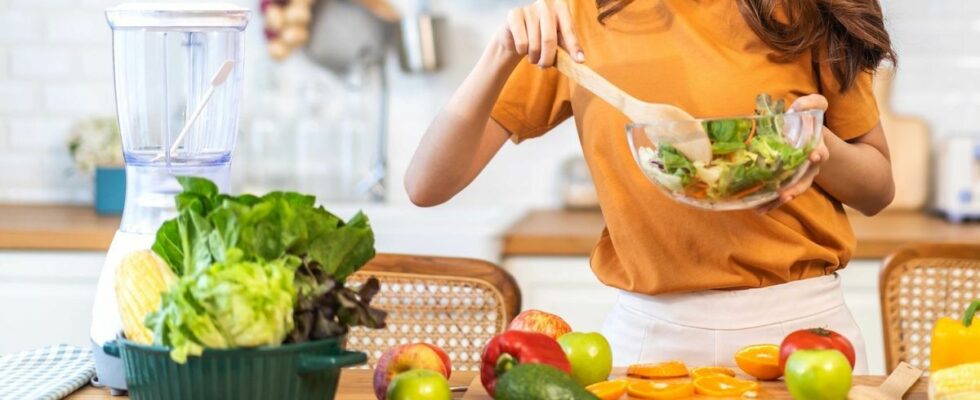Published on
updated on
Reading 3 min.
It’s no longer a secret: whether we like it or not, we are confronted with microplastics in our daily environment, even in our food! How can we reduce this impact a little? Here are a few simple rules to put in place.
Microplastics found in blood, breast milk, brain… Not a month goes by without a new study proving the omnipresence of this pollution in our bodies. How? Particularly through the food and water we consume. (We ingest up to the equivalent of a credit card per week!)
Health risks
But these nanoparticles that enter our bodies are not harmless. While many studies are still being conducted on the subject, we now know that these tiny pieces of plastic can contain any combination of more than 16,000 chemicals, 4,200 of which are known to be toxic and absorb chemicals from the environment and host microorganisms such as bacteria and viruses. Substances now linked to cancer, hormonal and reproductive problems, immune system problems, respiratory diseases and many other health problems, according to Erica Cirino, communications manager for the Plastic Pollution Coalition, interviewed by Well & Good magazine. Faced with this, experts offer their advice to reduce absorption as much as possible
8 Ways to “Eat” Less Plastic
At an individual level, it is therefore possible to reduce your consumption of microplastics through small actions that can make a big difference to your health and to the environment.
Avoid plastic food containers
Plastic food storage containers, no matter what temperature they are kept at, can cause microplastics to leak into the food they contain. It is therefore best to avoid them as much as possible. You can also invest in glass containers and gradually change your kitchen utensils to healthier materials.
Avoid reheating food in plastic containers
If you already have a cupboard full of plastic food containers that you’re not ready to part with, try not to reheat your leftovers in them. Heating accelerates the transfer of microplastics into food.
Choose cookware made with safer materials
Instead of plastic, opt for cookware and food storage containers made of stainless steel, glass, ceramic or wood. These are generally much safer for you, as they are low or free of microplastics, and help to divest from the plastic industry. Silicone options, on the other hand, will be slightly better than pure plastic products, but they still contain some.
Opt for reusable water bottles
Plastic is everywhere in the water industry, with many bottled waters being full of plastic. This leads to abrasion of the plastic, even when the bottles are kept cold. Luckily, there are a plethora of beautiful reusable, glass, and stainless steel water bottles on the market today to help you get around this problem.
Reduce visits to fast food restaurants
While the occasional trip to a fast food restaurant can be a nice treat, it’s best to limit them as much as possible, especially when you’re watching your microplastic consumption. These restaurants are notorious for serving food and drinks in plastic packaging, although some are starting to serve their food in untreated paper.
Choose fresh, whole foods whenever possible
There are many reasons to opt for fresh and whole foods in your daily life, but the presence of microplastics in processed and packaged foods. By buying fresh products (fruits, vegetables, fish, meats, seeds, etc.) you ensure that you eat better for your health but also greatly or even completely reduce the presence of microplastics.
Be selective about high-fat products
High-fat products, such as dairy, may be more susceptible to microplastic transfer than other options. A 2020 study found that the concentration of phthalates (a common chemical found in plastic) was higher in high-fat products. This is partly because phthalates and many other plastic chemicals are fat-soluble.
Look for alternative water filtration
Filtering your water at home is a great way to increase its safety while reducing your reliance on bottled water. But when microplastics are a concern, plastic filter basins aren’t the best solution. Instead, look for stainless steel and glass water filters that can help reduce the amount of time your water interfaces with plastic.
